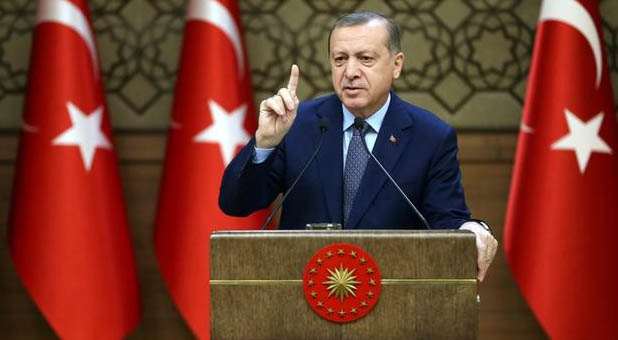Turkey will be one of the important issues facing the incoming administration. Candidate Donald Trump didn’t say much about Turkey, but his designated National Security Adviser, Michael Flynn, has. And what the latter opined is not good, since Ankara is steadily moving toward authoritarianism and actively impeding U.S. policy in Iraq and Syria.
Flynn, a retired general who headed the Defense Intelligence Agency, appears to share the military’s traditional institutional deference toward Turkey. Ankara’s critics long pointed to the army’s outsize, undemocratic role; government’s routine violations of human rights; military’s invasion and continued occupation of a large portion of the Republic of Cyprus and regime’s brutal campaign against Kurdish separatists.
However, the Pentagon always came to Ankara’s defense: the country, with its military bases, was seen as a bulwark against Soviet expansion and model of moderate Islamic democracy.
But the end of the Cold War eliminated Ankara’s claim to anchor Europe’s security. In fact, Turkey has become a liability.
Last fall President Recep Tayyip Erdogan risked dragging the entire continent into a full-scale war by shooting down a Russian aircraft for a 17-second violation of Turkish airspace. Then Erdogan made a dramatic volte-face, staging a rapprochement with Moscow and raising questions whether his government could be trusted in a confrontation between NATO and Russia.
Moreover, Turkey lost its democratic status when Erdogan dropped his liberal feint which had won support from secular Turks and foreign observers alike. His government arrested critics, tried opponents in bizarre conspiracy trials, jailed scores of journalists, seized private media enterprises, threatened business critics and advanced Islamist values. The country became a scary place even before the failed July coup.
Since then the regime has used the attempted putsch as an excuse to arrest opposition legislators and punish any and all opponents, including those who had opposed the military plot. More than 100,000 people, including American citizens, have been imprisoned, lost their jobs, or been otherwise penalized. Erdogan has revived his stalled push for an authoritarian, Putin-like presidency.
The rise of the Islamic State offers new reasons to doubt the bilateral relationship. Turkey increasingly thwarts U.S. policy in the Middle East.
Ankara rejected an American request to launch a second front from the north against Iraq in 2003. Only after extended negotiations did Turkey agree to American use of Incirlik air base against the Islamic State.
Once an ally of Syrian President Bashar al-Assad, President Erdogan flipped to seek the former’s ouster; unwilling to commit Turkish troops and wealth, he insisted that Washington pursue his objective, in which the U.S. had no compelling interest. At the same time, the Erdogan government accommodated the Islamic State, allowing passage of men and materiel into Syria and facilitating the sale of oil seized by the violent jihadists.
The Erdogan government abandoned the much-praised ceasefire with the Kurdistan Workers’ Party, or PKK, to raise domestic political tensions and regain the Islamic party’s parliamentary majority. Now Ankara is more active attacking Kurdish insurgents—the Kurdish Democratic Union Party/People’s Protection Units (PYD/YPG)—in Syria who have been America’s strongest ally against the Islamic State.
Moreover, Erdogan has insisted on his nation’s participation in operations inside Iraq, including against ISIS-held Mosul against the wishes of the Iraqi government, which fears he plans to annex long-claimed territory. Erdogan explained: “We did not voluntarily accept the borders of our country.”
Washington should stop treating Ankara as an ally. American officials should have no illusions about what to expect when dealing with Turkey.
Yet Flynn recently argued that “Turkey is vital to U.S. interests. Turkey is really our strongest ally against the Islamic State in Iraq and Syria (ISIS), as well as a source of stability in the region. It provides badly needed cooperation with U.S. military operations.” None of these claims is true. Worse, Flynn argued: “We need to see the world from Turkey’s perspective” and “recognize Turkey as a priority.”
Of equal concern is Flynn’s position on the extradition of Muslim cleric Fethullah Gulen. Although Gulen’s participation in the coup attempt is plausible, Erdogan treated the incident the way Hitler responded to the Reichstag Fire: an excuse to purge any opponent, even with no connection to the incident. Yet Flynn ignored the requirements of U.S. law in demanding Gulen’s extradition, which requires a legal showing of culpability.
Ankara once was a strong U.S. ally. But not under President Erdogan. He has chosen to take a different course. The incoming Trump administration should respond accordingly. {eoa}
Doug Bandow is a senior fellow at the Cato Institute.
This article was originally published at ConservativeHQ.com. Used with permission.
See an error in this article?
To contact us or to submit an article






















